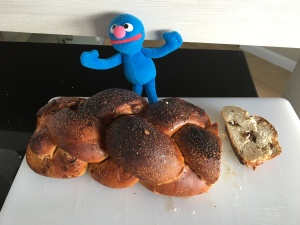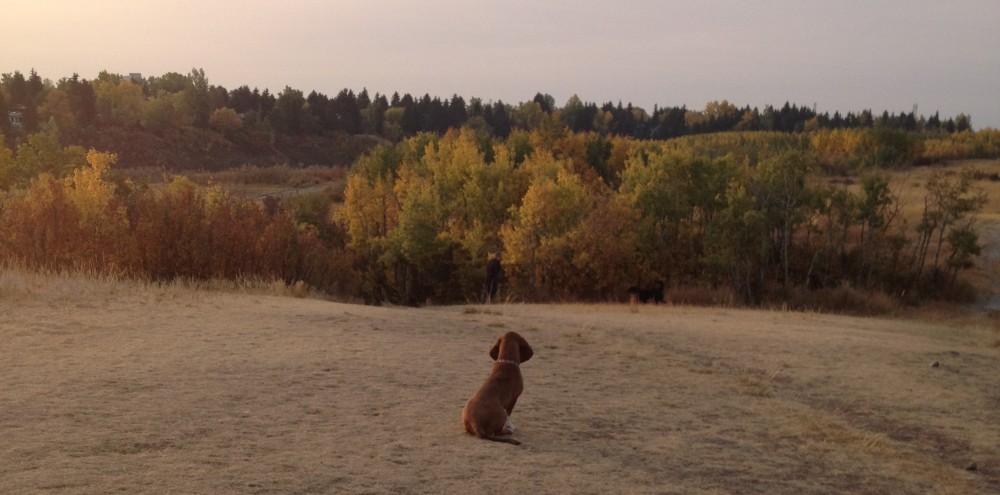Have I ever told you that I studied Hebrew for years, even during university? I even lived in Jerusalem for a year. You might think the year of language immersion would have helped me hone my spoken Hebrew, but you’d be wrong. Back then, I was too timid to speak the language much. Often when I sheepishly tried to use my Hebrew, Israelis responded in English. They wanted to practice their second language as much as I wanted to practice mine.
It’s been thirty years since my Hebrew language learning stopped, but during our trip to Israel, more Hebrew came back to me than I expected. Most of the time, I think people understood the phrases and sentences I’d first carefully scripted in my head. Being able to speak the language helped when we needed directions, or the price of something in the market, or where to find the nearest bathroom/babka/baklava. I found I could read many store signs, understand the odd menu, and eavesdrop on the occasional conversation. The eavesdropping was the most fun.
Fully fluent I am not, however. Generally, I understood every third word or so. The Israelis that I understood easily, however, were those like me whose first language was English. They spoke with an accent like mine and at a moderate pace. At one of our first lunch stops on our trip, I realised I easily understood our server’s Hebrew. Then I overheard him speaking to the person at the table next to us in fluent English. Turns out he was born in the U.S. but emigrated to Israel with his parents a few years ago. I thanked him for allowing me to speak my slow, broken Hebrew, knowing full well we could communicate more easily in English, during the lunchtime rush.
 I may have understood what was being said around me, but I often forgot that J.’s Hebrew was limited to “shalom” and “challah”. Once we were in an elevator when a fellow asked her to push the 14th floor. J. was facing away from him, and had no idea this man had asked her for help. I, in my ignorance, impatiently repeated the floor number to her in Hebrew. Thankfully we sorted the miscommunication out before he’d missed his floor.
I may have understood what was being said around me, but I often forgot that J.’s Hebrew was limited to “shalom” and “challah”. Once we were in an elevator when a fellow asked her to push the 14th floor. J. was facing away from him, and had no idea this man had asked her for help. I, in my ignorance, impatiently repeated the floor number to her in Hebrew. Thankfully we sorted the miscommunication out before he’d missed his floor.
Over the course of the trip, my question-asking skills improved, but my ability to understand Israelis’ responses, spoken in rapid-fire Hebrew, didn’t. On our second last day, I asked a restaurant server for the washroom, but I didn’t understand his response at all. After standing there momentarily with no idea where to go, I repeated the same question to another server. Thankfully she pointed me in the right direction while repeating the same incomprehensible response.
There are several morals of this story. If you’re going to speak with the locals in their language, remember that you’ll also have to understand their responses. If you don’t understand, keep trying, and don’t worry if you sound like a toddler. At least you’ve made the effort. Oh, and don’t forget that your travel partner may have no idea what you, or anybody else, is saying. Trust me, she’ll remind you if you do forget.


I remember practicing Spanish phrases for our first trip to Mexico, concentrating on those I thought I’d need the most….and when I really did need the bathroom, and it was NOW (it being Mexico after all), the answer back in Spanish was completely incomprehensible, leading to near disaster. Note to self, practice many phrases so that you are noticeably bad at them all, don’t practice one until it’s perfect because you may not understand the response when you need it the most…..
LikeLike
Mike: Thanks for your insight and your willingness to share your humiliation far and wide. Thank goodness I’m not the only
idiotone. I will take your wise advice to heart next time I travel abroad. XOLikeLike
LOL. My motto coming to Canada from a non-English speaking country is that every language is a living product and you have to keep it alive; so it’s okay to make up new words if you don’t know the correct ones 😃
LikeLike
PMH: Great motto but why didn’t you mention it to me before I left? It would have come in handy! 😁
LikeLike